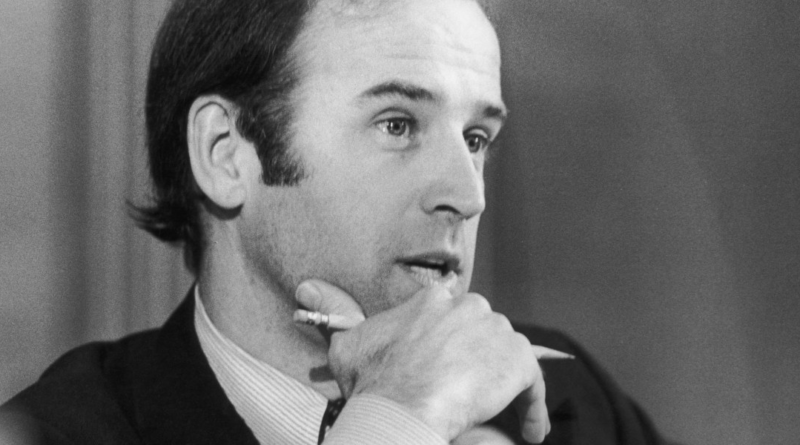Biden voted for the Bayh-Dole Act 44 years ago–but the administration's plans to reinterpret it could undermine decades of world-leading U.S. innovation
His actions could help HBCUs foster scientific innovations that become real-world products. But whether the schools will be able to take advantage of the new opportunities depends on a process known as “technology transfer,” which brings promising breakthroughs out of university labs to everyday consumers. The Google search algorithm, the nicotine patch, and the Honeycrisp apple are just a few of the myriad innovations to come out of this process.
For over 12 years I have led the tech transfer program at Jackson State University, one of the largest HBCUs in the United States. I am now also the first person from an HBCU to chair AUTM, a non-profit organization of more than 3,000 members dedicated to transforming academic discoveries into the products and services of tomorrow.
Much of the modern tech transfer process flows from a revolutionary yet little-known 1980 law called the Bayh-Dole Act. That pivotal law allows academic institutions to directly protect and commercialize discoveries arising from federally funded research on their campuses. Universities are then free to license that intellectual property to private-sector companies, which further invest funds and continue to research and develop those inventions into commercially useful products.
The effects of the Bayh-Dole law, and the technology transfer horsepower it unleashed, are staggering. Between 1996 and 2020, technology transfer resulting from Bayh-Dole contributed as much as $1.9 trillion to U.S. economic output and supported some 6.5 million jobs.
The genius of this system, now emulated around the world, is that it takes control of intellectual property away from the federal government and empowers universities. This creates a virtuous cycle, in which taxpayer funds support research that may one day be commercialized, which can lead to royalty payments to universities and re-investment in future research for the next generation of inventions.
Ensuring that HBCU faculty and students benefit from this cycle has been one of my top priorities. That’s why Jackson State leads EnRICH, a “pre-accelerator” for faculty and student innovators, and participates in programs like the Xlerator Network and the National Science Foundation Mid-South I-Corps, which encourage innovation and tech transfer in our region. This fall, the National Institutes of Health awarded Jackson State and our partners $12 million to enhance research, development, and entrepreneurship in biomedical innovation.
Such regional investments are crucial to democratizing access to the benefits of tech transfer, previously the preserve of elite institutions such as Columbia, MIT, and UC Berkeley. At Jackson State and other regional institutions, we empower innovators and entrepreneurs who have been historically overlooked. This creates a more equitable landscape and helps everyone in our region by creating new economic opportunities.
Unfortunately, the U.S. tech transfer system, which was supercharged after the passage of the Bayh-Dole Act in 1980, is now on shaky ground. This month, after years of pressure from misguided activists, the Biden Administration announced a plan to dramatically reinterpret a provision of that vital law.
The White House has proposed that the government be allowed to “march in” and forcibly re-license patents that result from federally-funded research, with no basis in law. Under the planned scheme, the government could use this tactic to control the prices of thousands of products, including medicines.
This is a puzzling turn of events as President Biden, who voted for the original Bayh-Dole Act, has upheld decades of precedent by rejecting demands to reinterpret march-in rights at every turn, until now. We hope that during the public comment period on the proposal that runs through Feb. 6, better sense prevails. The suggested legal revision poses grave risks to tech transfer, regional innovation, and economic equity.
I am very concerned that this development could kill the golden goose that we have built for decades and undo our efforts to uplift innovators from all backgrounds. Reinterpreting Bayh-Dole as a tool for arbitrary price setting would make successful commercialization even more difficult. Private sector firms and their investors only risk their time, talent, and treasure on developing unproven technologies if they can be certain their efforts have the potential to pay off. That’s precisely the purpose of patents.
Weakening the tech transfer process would work directly against the primary purpose of Bayh-Dole, which is to bring the products of government-funded research to consumers.
Entrepreneurs of color, at HBCUs and elsewhere, are finally getting a chance to show how innovative and entrepreneurial they are. They’re founding dozens of startups in places like Mississippi. But venture capital funding is hard to find in “fly over America.”
Making this already difficult process even harder, by threatening to take away entrepreneurs’ intellectual property rights, would ensure they never even get a chance.
That would be more than a tragedy. It would be a disaster for our nation, which needs all the innovation– and economic growth–we can get.
Almesha L. Campbell, Ph.D., is the assistant vice president for research and economic development at Jackson State University, a public historically Black university in Jackson, Mississippi. She also serves as chair of AUTM, the nonprofit leader in efforts to educate, promote, and inspire professionals to support the development of academic research that changes the world and drives innovation forward.
More must-read commentary published by Fortune:
- Economic pessimists’ bet on a 2023 recession failed. Why are they doubling down in 2024?
- COVID-19 v. Flu: A ‘much more serious threat,’ new study into long-term risks concludes
- Access to modern stoves could be a game-changer for Africa’s economic development–and help cut the equivalent of the carbon dioxide emitted by the world’s planes and ships
- ‘Parroting Putin’s propaganda’: The business exodus over Ukraine was no Russian bonanza
The opinions expressed in Fortune.com commentary pieces are solely the views of their authors and do not necessarily reflect the opinions and beliefs of Fortune.




